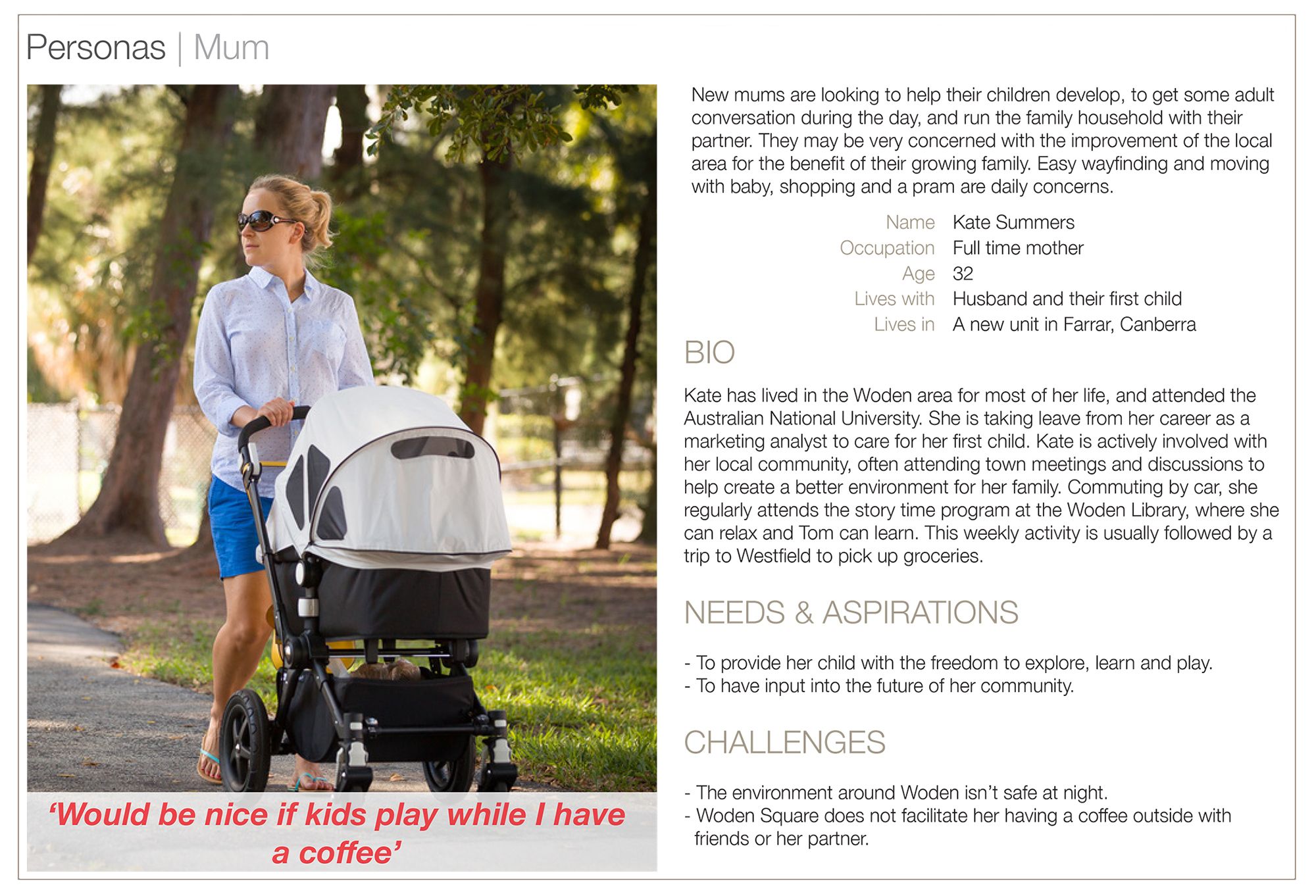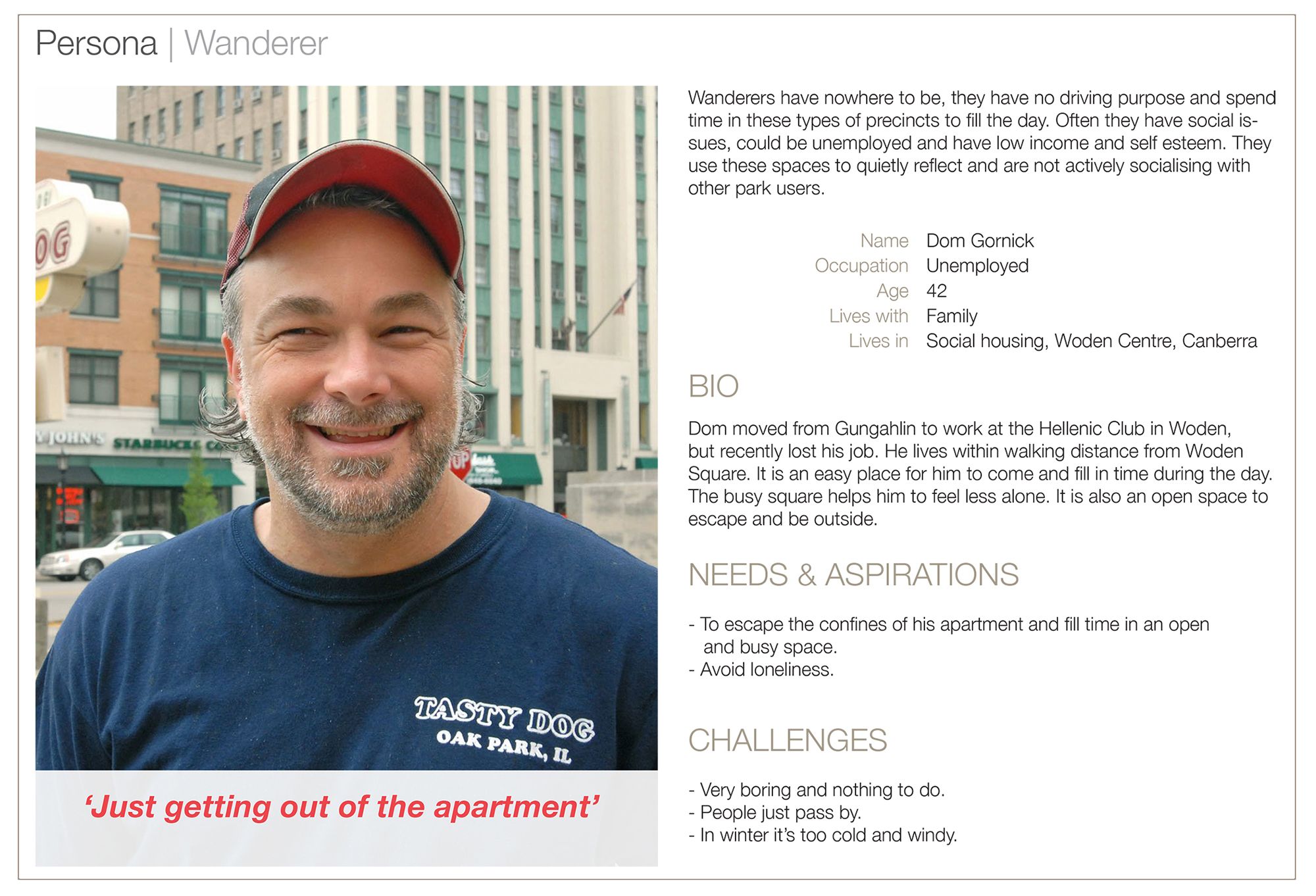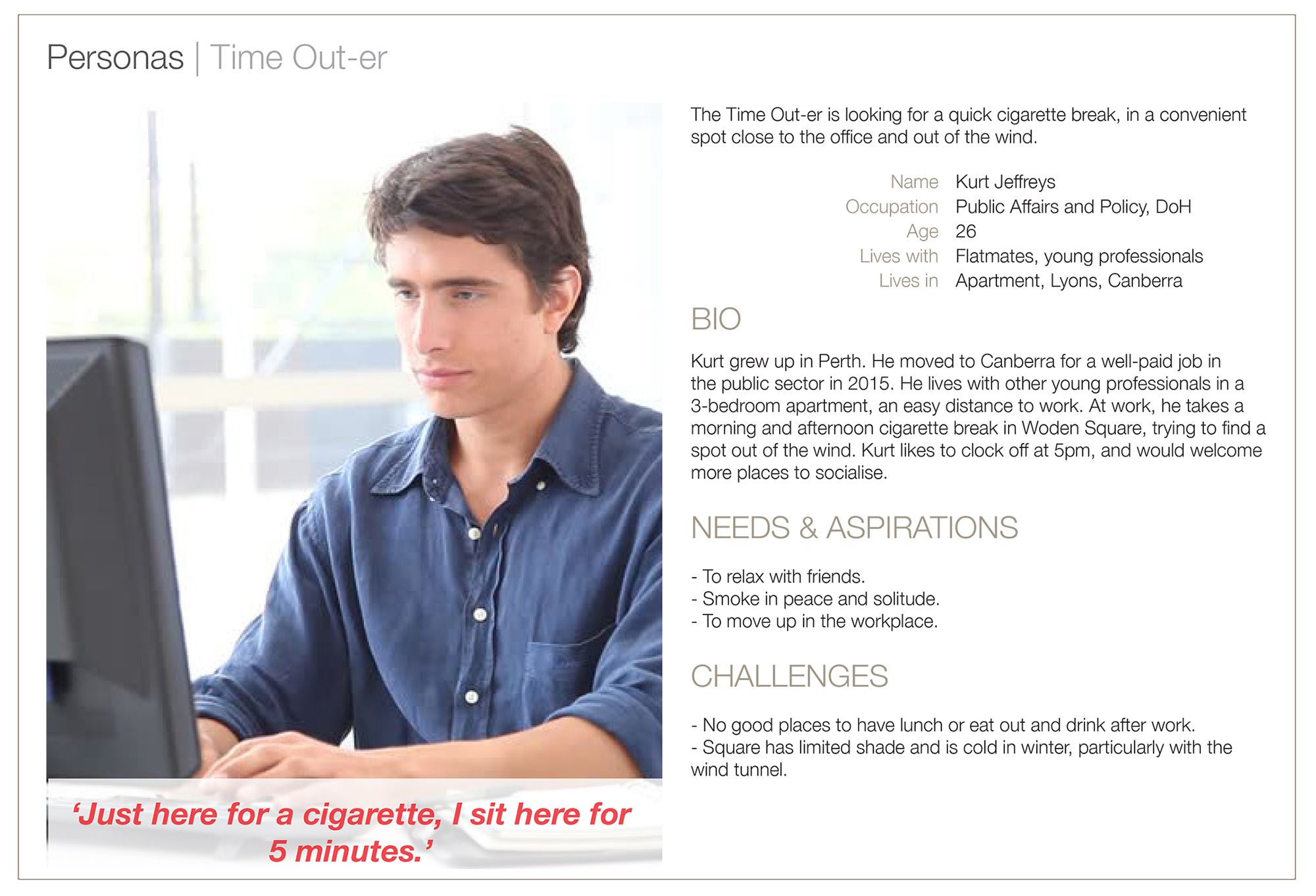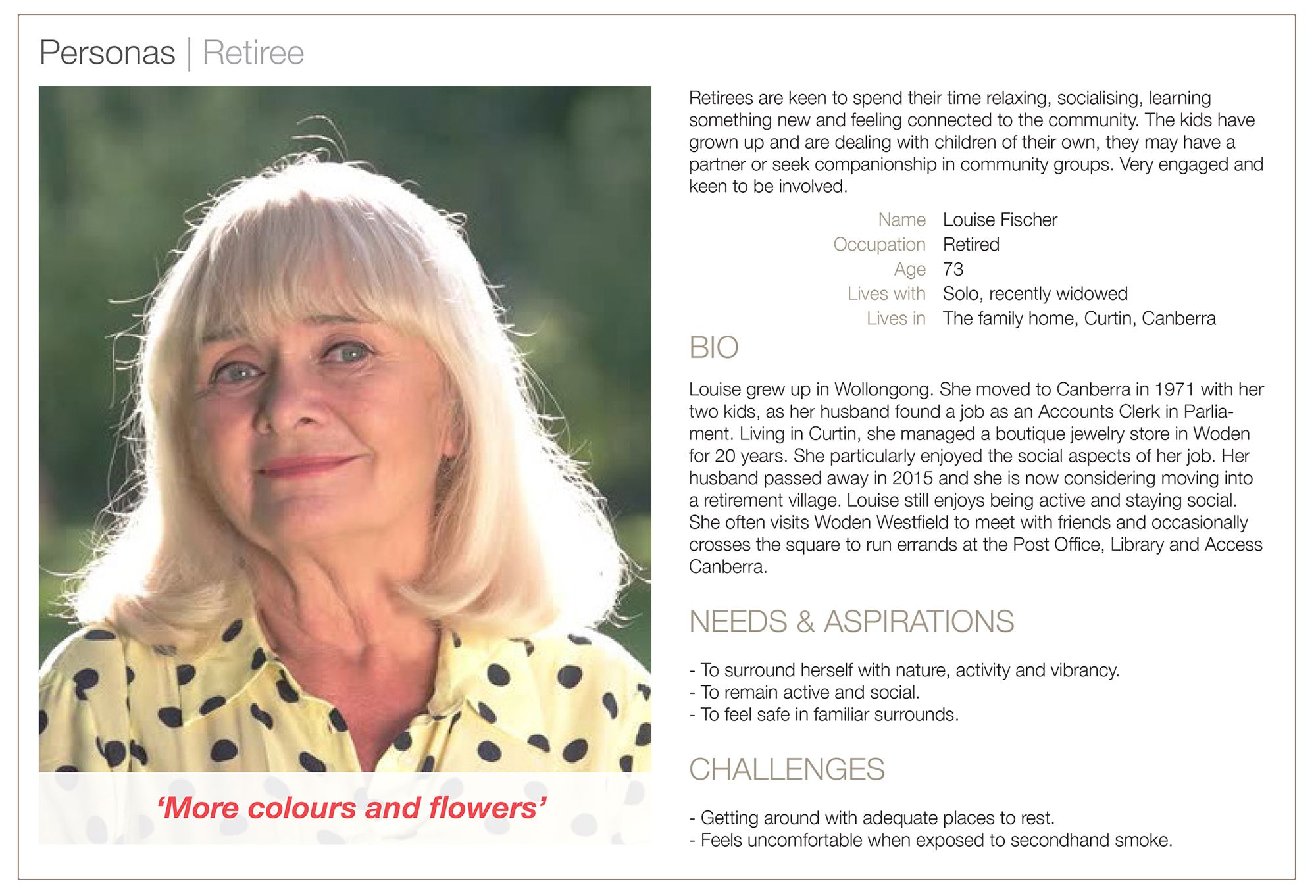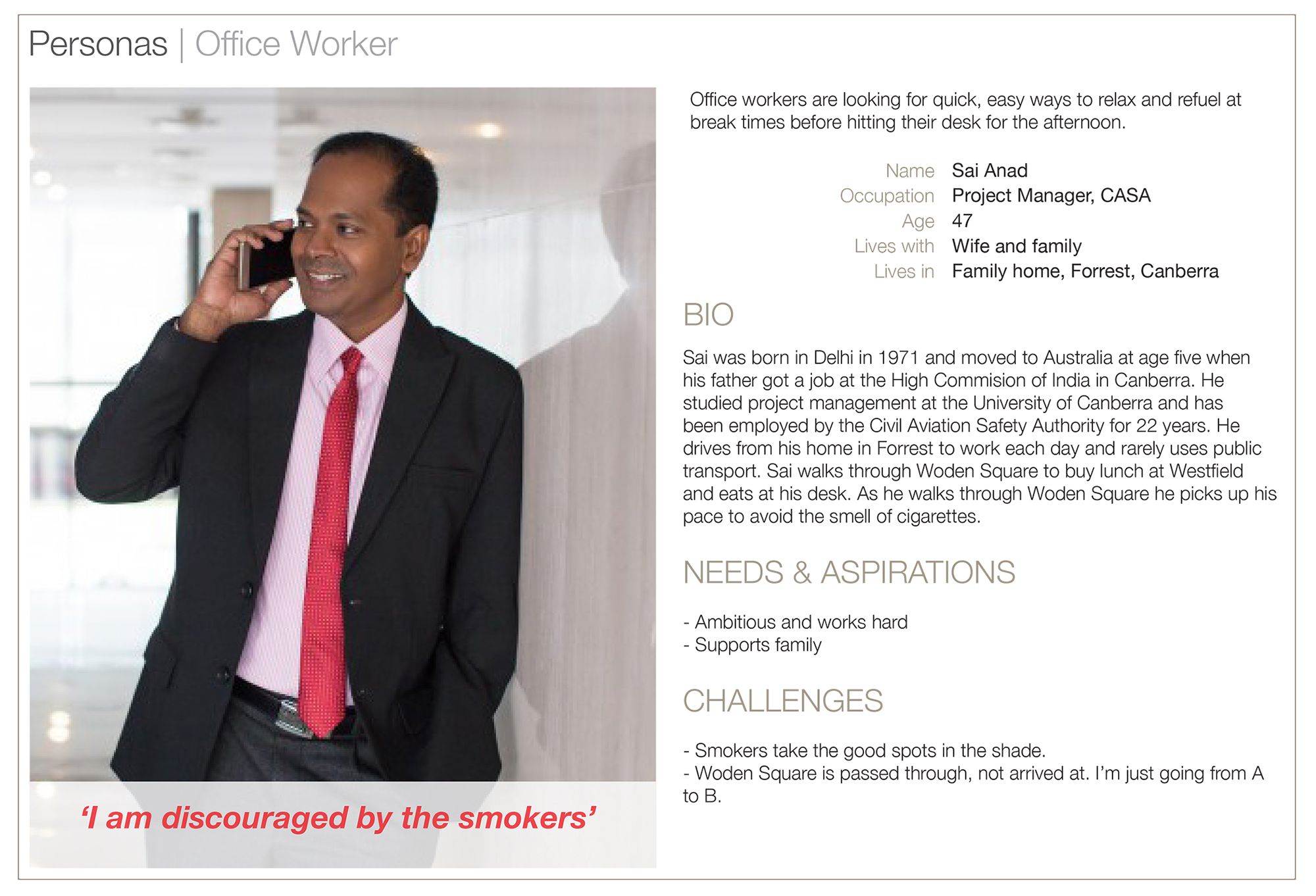
Street Furniture Australia has used empathy interviews, personas, observations, journey mapping and other user-centred research techniques to focus Woden Experiment on the community.
These qualitative methods unearth rich detail about the lives and needs of people who use Woden Town Square. The aim is to inform the design of the six-month installation with a “community first” philosophy.
“We employ user-centred design techniques in the making of our furniture, and #WodenExperiment now offers the opportunity to apply this methodology to public places,” says Mark Armstrong, Street Furniture Australia Design Director.
“One of the challenges of public space is meeting the needs of people from many different walks of life. Through our empathy interviews and observations of the town square we have come up with six key personas to design for.
“The personas represent frequent users, as well as those we would like to attract more often, or invite to spend more time in the space instead of passing through.”
The personas are informed by deep empathy interviews conducted by Street Furniture Australia and the ACT Government at Woden Town Square during different times of the day and week.
The six groups are: the Time Out-er, Office Worker, Mum, Retiree, Wanderer and Student.
Each has been given a name, age, career, social and demographic characteristics, needs, desires, habits and cultural background – enough detail to represent real people in the designers’ minds.
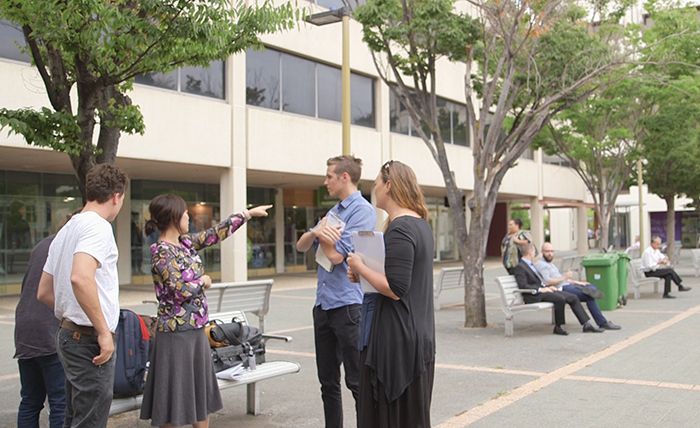
The team also observed and analysed the journeys each persona might take through the square, their issues and matching opportunities, challenges and aspirations.
“While each persona has a unique story and situation, we found that many had overlapping needs when it comes to Woden Town Square. This includes the need to feel safe and secure, to find shelter and seek a comfortable microclimate,” says Armstrong.
“Our job now is to turn this research into a design brief that answers as many of those needs as we can achieve in the installation.”
For more information on #WodenExperiment, see our StreetChat article, Discovery Report, or follow the project on Facebook.
